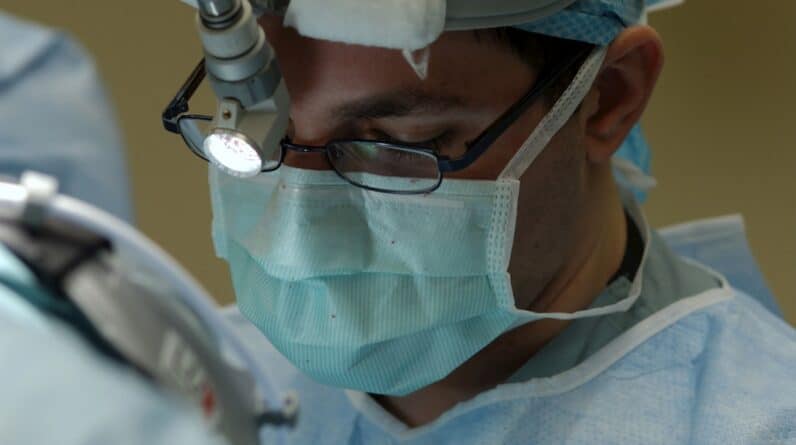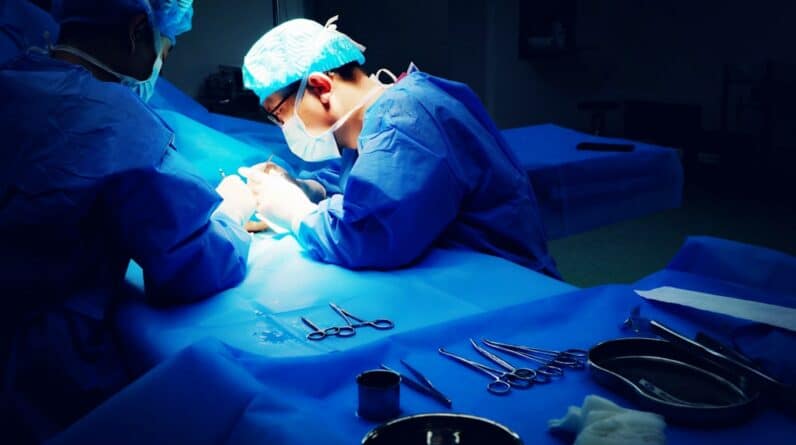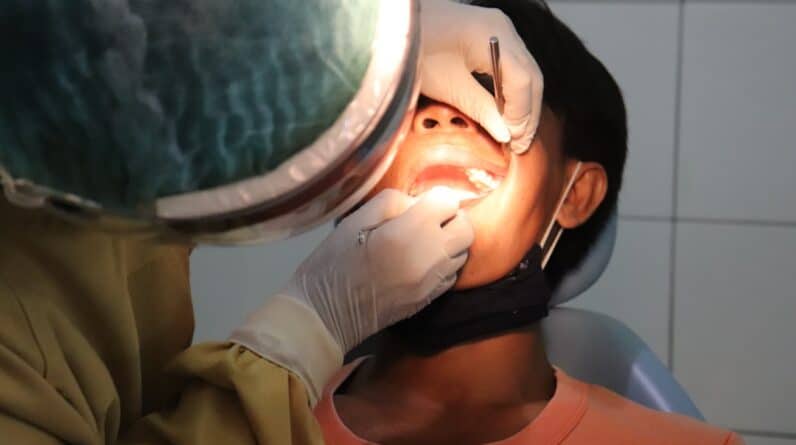After undergoing Lasik surgery, the importance of follow-up care cannot be overstated. This phase is crucial for ensuring that your eyes heal properly and that the desired vision correction is achieved. You may feel a sense of relief and excitement after the procedure, but it’s essential to remember that the journey doesn’t end there.
Follow-up appointments allow your eye care professional to monitor your recovery, assess your vision, and address any concerns you may have. These visits are designed to catch any potential issues early, ensuring that your eyes heal optimally. Moreover, follow-up care provides you with an opportunity to ask questions and receive guidance on how to care for your eyes post-surgery.
You might experience changes in your vision or discomfort, and having a professional to turn to can alleviate anxiety. Regular check-ups can help you understand what is normal during the healing process and what might require further attention. By prioritizing follow-up care, you are taking an active role in your recovery and maximizing the benefits of your Lasik surgery.
Key Takeaways
- Follow-up care after Lasik surgery is crucial for monitoring the healing process and addressing any potential complications.
- During follow-up care appointments, patients can expect to undergo various tests and evaluations to ensure the eyes are healing properly.
- Common post-operative symptoms such as dry eyes and glare can be managed with prescribed medications and lifestyle modifications.
- Understanding the healing process after Lasik surgery involves knowing that vision may fluctuate before stabilizing, and it can take several months to achieve optimal results.
- Potential complications such as infection or inflammation should be promptly addressed by seeking immediate medical attention.
- Medications play a key role in the post-operative period, including eye drops to prevent infection and promote healing.
- Tips for ensuring a smooth recovery include avoiding strenuous activities, protecting the eyes from irritants, and attending all scheduled follow-up appointments.
- Lifestyle changes such as wearing sunglasses outdoors and avoiding rubbing the eyes can support healing and long-term results after Lasik surgery.
- Compliance with follow-up care instructions is essential for achieving the best possible outcome and minimizing the risk of complications.
- When choosing a provider for Lasik follow-up care in Frisco, Texas, it’s important to consider their experience, reputation, and the convenience of their location.
- Frequently asked questions about Lasik follow-up care may include inquiries about post-operative restrictions, expected recovery timeline, and potential costs of follow-up appointments.
What to Expect During the Follow-up Care Appointments
During your follow-up care appointments, you can expect a thorough examination of your eyes. Typically scheduled within the first week after surgery, these visits will involve various tests to evaluate your vision and the overall health of your eyes. Your eye care professional will likely measure your visual acuity, check for any signs of infection or inflammation, and assess how well your cornea is healing.
You may also undergo tests to measure the pressure in your eyes, which is crucial for detecting any potential complications. In addition to the technical assessments, these appointments are a chance for you to discuss your experience since the surgery. You might want to share any symptoms you’ve encountered, such as dryness or fluctuations in vision.
Your doctor will take the time to address these concerns and provide tailored advice on managing any discomfort. Understanding what to expect during these appointments can help you feel more prepared and less anxious about the recovery process.
Common Post-operative Symptoms and How to Manage Them
After Lasik surgery, it’s common to experience a range of post-operative symptoms as your eyes adjust to their new state. You may notice dryness, light sensitivity, or even slight fluctuations in your vision. These symptoms can be unsettling, but they are typically temporary and part of the healing process.
To manage dryness, using artificial tears as recommended by your eye care professional can provide significant relief. Staying hydrated and avoiding environments that exacerbate dryness, such as windy or dusty areas, can also be beneficial. Light sensitivity is another common issue that many patients face after surgery.
Wearing sunglasses when outdoors can help shield your eyes from bright light and reduce discomfort. It’s also advisable to limit screen time initially, as prolonged exposure can strain your eyes further. If you find that these symptoms persist or worsen, don’t hesitate to reach out to your eye care provider for guidance.
They can offer additional strategies or treatments to ensure your recovery remains on track.
Understanding the Healing Process after Lasik Surgery
Understanding the healing process after Lasik surgery is essential for setting realistic expectations about your recovery timeline. Initially, you may experience some discomfort and visual fluctuations as your cornea begins to heal. This phase typically lasts a few days, during which you should follow your doctor’s instructions closely.
Most patients notice significant improvements in their vision within the first week, but complete stabilization can take several weeks or even months. During this healing period, it’s important to be patient with yourself and allow your body the time it needs to adjust. You might find that certain activities become easier over time, while others may still pose challenges.
Regular follow-up appointments will help track your progress and ensure that everything is healing as it should. By understanding this process, you can better appreciate the gradual improvements in your vision and remain committed to following through with post-operative care.
Potential Complications and How to Address Them
While Lasik surgery is generally safe and effective, it’s important to be aware of potential complications that could arise during the recovery process. Some patients may experience issues such as glare, halos around lights, or even regression of vision correction. If you notice any of these symptoms persisting beyond the initial healing phase, it’s crucial to contact your eye care provider immediately.
Early intervention can often prevent more serious complications from developing. Your eye care professional will guide you through addressing any complications that may arise. They may recommend additional treatments or adjustments based on your specific situation.
It’s essential to remain vigilant about any changes in your vision and communicate openly with your provider about your concerns. By being proactive in addressing potential complications, you can help ensure a smoother recovery and maintain the best possible outcomes from your Lasik surgery.
The Role of Medications in the Post-operative Period
Medications play a vital role in the post-operative period following Lasik surgery. Your eye care provider will likely prescribe anti-inflammatory drops and antibiotics to help prevent infection and reduce inflammation during the healing process. It’s important to adhere strictly to the prescribed medication regimen, as this can significantly impact your recovery and overall results.
In addition to prescribed medications, over-the-counter options may also be recommended for managing symptoms such as dryness or discomfort. Artificial tears can provide relief from dryness, while pain relievers may be suggested if you experience discomfort during the initial recovery phase. Always consult with your eye care provider before adding any new medications or treatments to ensure they are appropriate for your specific situation.
Tips for Ensuring a Smooth Recovery
To ensure a smooth recovery after Lasik surgery, there are several practical tips you can follow. First and foremost, prioritize rest during the initial days following the procedure. Your eyes have undergone a significant change, and giving them time to heal is crucial.
Avoid strenuous activities and limit screen time as much as possible during this period. Additionally, be diligent about attending all scheduled follow-up appointments. These visits are essential for monitoring your progress and addressing any concerns that may arise.
Following your eye care provider’s instructions regarding medications and eye care routines is equally important. By taking these steps seriously, you can enhance your chances of a successful recovery and enjoy the long-term benefits of improved vision.
Lifestyle Changes to Support Healing and Long-term Results
Incorporating certain lifestyle changes can further support your healing process after Lasik surgery and contribute to long-term results. A balanced diet rich in vitamins A, C, and E can promote eye health and aid in recovery. Foods such as leafy greens, carrots, and fish high in omega-3 fatty acids are excellent choices for nourishing your eyes.
Additionally, consider adopting habits that protect your eyes from strain and irritation. This might include taking regular breaks from screens using the 20-20-20 rule—every 20 minutes, look at something 20 feet away for at least 20 seconds. Staying hydrated is also essential; drinking plenty of water helps maintain moisture levels in your eyes.
By making these lifestyle adjustments, you can enhance not only your recovery but also the longevity of your improved vision.
The Importance of Compliance with Follow-up Care Instructions
Compliance with follow-up care instructions is critical for achieving optimal results after Lasik surgery. Your eye care provider has tailored these instructions based on their expertise and understanding of your unique situation. Ignoring or deviating from these guidelines could lead to complications or suboptimal outcomes.
Being proactive about following instructions means not only taking medications as prescribed but also adhering to activity restrictions and attending all follow-up appointments. If you have questions or concerns about any aspect of post-operative care, don’t hesitate to reach out for clarification. By committing to compliance with these instructions, you are investing in the success of your Lasik surgery and ensuring that you enjoy clear vision for years to come.
How to Choose the Right Provider for Lasik Follow-up Care in Frisco, Texas
Choosing the right provider for Lasik follow-up care in Frisco, Texas is an important decision that can significantly impact your recovery experience. Start by researching local eye care professionals who specialize in post-operative care for Lasik patients. Look for providers with positive reviews and testimonials from previous patients; this can give you insight into their level of expertise and patient satisfaction.
Additionally, consider scheduling consultations with potential providers to discuss their approach to follow-up care. Ask about their experience with Lasik surgeries and how they handle post-operative complications if they arise. A good provider will take the time to answer all of your questions and make you feel comfortable throughout the process.
By carefully selecting a qualified provider, you can ensure that you receive the best possible care during your recovery journey.
Frequently Asked Questions about Lasik Follow-up Care
As you navigate through the post-operative phase after Lasik surgery, you may have several questions regarding follow-up care. One common inquiry is how often follow-up appointments are necessary; typically, these visits occur within the first week after surgery and then at intervals determined by your eye care provider based on your individual healing progress. Another frequently asked question pertains to what symptoms are considered normal versus those that warrant concern.
While mild discomfort and visual fluctuations are common initially, persistent pain or significant changes in vision should prompt immediate communication with your provider. Understanding these aspects of follow-up care can help alleviate anxiety and empower you throughout your recovery journey. In conclusion, prioritizing follow-up care after Lasik surgery is essential for ensuring optimal healing and long-term success in achieving clear vision.
By understanding what to expect during appointments, managing common post-operative symptoms effectively, and adhering closely to medical advice, you can navigate this critical phase with confidence and ease.
FAQs
What is Lasik follow-up care?
Lasik follow-up care refers to the post-operative appointments and examinations that are necessary after undergoing Lasik eye surgery. These appointments are important for monitoring the healing process and ensuring the best possible outcome for the patient.
Why is Lasik follow-up care important?
Lasik follow-up care is important because it allows the eye surgeon to monitor the healing process, address any potential complications, and ensure that the patient’s vision is improving as expected. It also provides an opportunity for the patient to ask any questions or address any concerns they may have after the surgery.
What can I expect during Lasik follow-up care appointments?
During Lasik follow-up care appointments, the eye surgeon will typically perform a series of tests to evaluate the healing of the eyes and the improvement of vision. These may include visual acuity tests, corneal examinations, and measurements of the eye’s refractive error. The surgeon will also discuss any necessary post-operative care instructions with the patient.
How often do I need to attend Lasik follow-up care appointments?
The frequency of Lasik follow-up care appointments can vary depending on the individual patient and their specific healing process. In general, patients can expect to have follow-up appointments within the first few days, weeks, and months following the surgery. After the initial healing period, annual eye exams are recommended to monitor the long-term results of the surgery.
What should I do if I experience any issues or complications during the healing process?
If you experience any issues or complications during the healing process after Lasik surgery, it is important to contact your eye surgeon immediately. Common issues may include dry eyes, glare, halos, or fluctuations in vision. Your surgeon will be able to provide guidance and treatment to address these issues and ensure the best possible outcome for your vision.






